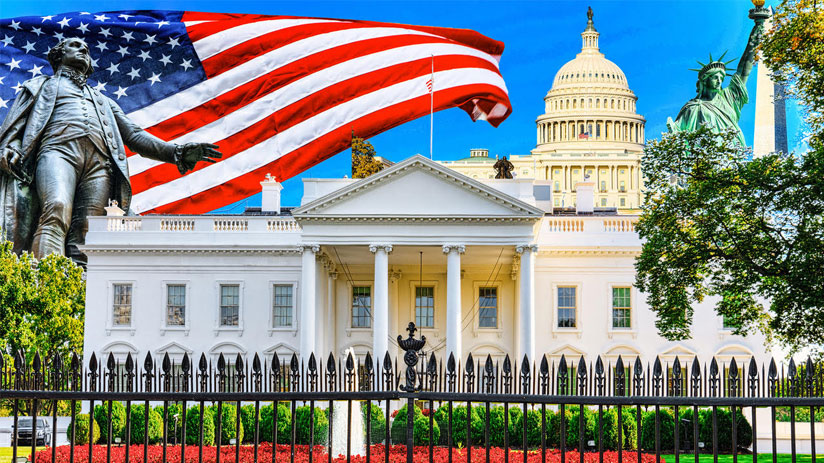
When the other party says no to your offer your most powerful response is simply to ask Why or Why Not. – with sincere curiosity.

By Thomas Wood
Lawmakers engaged in the sequester negotiations are suffering from an awkward tension between their interests and their positions.
A negotiator's position, as we know, is their stated goal or desire, while their interest is their underlying reason or motivation for their stated goal. For example, a buyer wants a 10% discount (position) to stay under budget and improve profit (interest).
Usually, interests and positions are connected but not identical. Once a good negotiator knows the other side's interests, he or she can offer new creative options to the other party's original position by addressing its interests in other ways. A seller who knows a buyer's interest is primarily staying under budget, for example, might offer something else as valuable as the discount a buyer has requested, such as free training on the equipment being sold.
But what do you do when a negotiator's position is in direct opposition to its interests? An article in Politico yesterday reports that Republican governors have publicly signed on to letters bashing Obama and praising House Republicans' efforts in the sequester debate, but meanwhile their offices are urging lawmakers to keep bargaining -- the cuts that would kick in could be devastating to programs in their states.
In this case, as is often true in politics, the real interest behind the governors' stated positions is to "save face," or to satisfy both the party leadership and their constituents. Any feasible solution for these politicians would have to take those interests into account rather than responding to the face value of their position.

By Thomas Wood
We tried to restrain ourselves from commenting in our negotiation workshops these last two months on the drama going on near our Washington, DC offices as the US President and Congress negotiated the US debt ceiling, with the President’s signature healthcare legislation – Obamacare – as the bargaining chip. Careful to stay neutral, but always alert to the strategy angles, we now have a few things to say, and they are all seeped in the fundamentals of negotiating. This Energizer Bunny just keeps on giving!
Negotiations to reopen the shuttered federal government and raise the nation’s debt ceiling were notable for one side’s insistence that it wasn’t negotiating at all. But despite the claims of President Obama and other Democratic leaders that they wouldn’t bargain over what they described as the basic functions of government, in the end they worked out a deal with their Republican adversaries. Most of us just don’t mean it when we say we won’t negotiate.
What other negotiating lessons can we learn from Washington’s latest fiscal crisis? At least five fundamentals.
1. The first is that preparation takes time. Although the partial shutdown of the federal government caught many Americans by surprise, defunding the government as a strategy for derailing health care reform was a plan in the making by an important faction of the Republican Party. President Obama, for his part, apparently decided in 2011—in the midst of another debt-ceiling confrontation—that he would never again negotiate over whether Washington should have enough borrowing authority to pay its bills. As it generally does, this early planning affected the outcome of the negotiations.
2. Another prominent feature is the power of deadlines. Deadlines often figure in negotiation—sometimes proposed to spur action in a cooperative way, sometimes wielded as a weapon by one side to intimidate the other.
Government funding was due to expire October 1 and the Treasury’s borrowing limit (the “debt ceiling”) would be reached on October 17. There was a difference between the two, however: the first was acknowledged by both parties to be justified and absolute, since it was the statutory end of the government’s fiscal year. The second was a less concrete estimate by the Treasury. Some Republicans probed this second deadline, suspecting it was arbitrary and changeable. Though the GOP was criticized for questioning the precision of the debt ceiling deadline because the consequences of default were so severe—regardless of exactly when it was triggered—in less drastic situations such probing of deadlines is entirely appropriate.
3. Third, our approaches can evolve as the negotiations evolve. Like most political confrontations, the strategy when this negotiation began was competitive. Each side felt it had right on its side and demanded the other yield. The Republicans, however, almost immediately shifted to what they presented as a compromise strategy, inviting the President and other Democrats to talk out their differences. But Democrats felt secure enough in their position—and viewed the GOP proposals as so unreasonable—that they didn’t feel pressured to go along. This is not usually a practical strategy for ongoing relationships such as the President and Congress must maintain, but such is the degree of political polarization in Washington today. Eventually, to break the weeks-long deadlock, Democrats joined in the compromise strategy, which seeks to give something to each side.
4. Fourth, positions are merely one way to satisfy interests. That’s why positions move in negotiations. The general wisdom is that the Republicans got much less than the President out of this compromise settlement, but some commentators think that viewpoint is confusing positions with interests. In fact, Republican positions changed over the course of the negotiation: beginning with a demand to defund or delay the implementation of the Affordable Care Act (Obamacare), then moving to other tax and spending issues, and eventually to policies disconnected from the budget.
But Republican interests remained the same throughout: a smaller, less intrusive federal government funded by lower taxes. Viewed that way, even though health care reform was only slightly modified, a central GOP interest was served by maintaining existing spending restraints in the temporary budget adopted as part of the deal.
5. And last, without a strong Plan B or BATNA, there is little likelihood of a big win. One reason President Obama could at least in the beginning maintain that he was not negotiating, and in the end get more of what he wanted, is that the other side began the process without apparently developing a strategic Negotiation Envelope. This is a planning tool that maps out wants (Most Desired Outcome), reasonable expectations (Goals), fallbacks (Least Acceptable Agreements) and “Plan B” (Best Alternative To a Negotiated Agreement—BATNA). The most aggressive GOP leaders of the confrontation seemed to have identified a lot of Most Desired Outcomes, but not one Least Acceptable Agreement. And there was no viable BATNA, since the public would not put up indefinitely with a closed government or with the economic chaos caused by a national default.
Perhaps that’s the principle negotiating lesson of the federal fiscal crisis of 2013: set a reasonable goal and chart a path to get there. Whatever the merits of the Republicans’ politics and policies, their negotiating strategy may need a recalculation.

By Leslie Mulligan
Businesses had to sharpen their negotiation skills as markets and supply chains endured enormous pressure in 2020. Now it’s the U.S. president’s turn to demonstrate his negotiation expertise in passing the $1.9 Trillion Covid-19 Relief Bill. Is he willing to collaborate with Congress, or will he take on a competitive approach? And how will the Republicans respond?
President Biden has made it his mission to tackle the devastating pandemic – it is the very first priority listed on the White House website. Specifically, he has vowed to get the massive $1.9 trillion coronavirus relief package passed in U.S. Congress and ensure Covid vaccines are distributed as rapidly as possible. Time is of the essence as the economy remains weak; many still face desperate times. Yet President Biden has also pledged a bipartisan approach to governance and wants to unite the country – so how do you negotiate effectively with Congress in this still polarized landscape to deliver on these promises; or do you?
Bipartisanship Approach?
Will a collaborative (win-win, interest-based) or even compromise approach produce bipartisan approval, or will the Administration have to take a competitive approach (win-lose) to get results.
Emerging from the last presidential election, the USA is seriously divided, no doubt about it. Yet President Biden is on a quest for unity, including in his Congressional relationships. As a long-serving alumnus of the Senate, he underscored the need for bipartisanship: “I think I can work with Republican leadership in the House and Senate. I think we can get some things done.” But will Republicans reciprocate – will they work with the president and their Democratic colleagues? We don’t know what is happening behind the scenes, but the president has only publicly met with 10 Republican senators in early February to discuss the Covid relief bill. And Republicans have felt rebuffed by their

Congressional colleagues: “…they were frustrated that their views weren’t being considered as Democrats pushed the legislation forward without GOP support”. This may foreshadow a competitive stance.
And yet, President Biden has the support of the American public writ large – even Republicans: “Half of all Republicans believe that President Joe Biden's $1.9 trillion COVID-19 relief package should be passed because of the proposed round of $1,400 stimulus checks, according to a new poll.” 73% of all Americans support this bill, according to a Navigator Research poll last week. Bipartisanship can be achieved in the public domain – that has certainly been realized in the run-up to the passage of this bill. But will any congressional Republicans come on-board? Jen Psaki, the White House Press Secretary, put this question succinctly when asked about Republican support: “Obviously, Republicans in Congress will have to make their own choice about whether they support the final package. But the vast majority of the public supports it, including the vast majority of most members’ constituents. So it’s really a question for them.”
But will Democrats entice them to support a negotiated bill, with a willingness to compromise by giving in on some of what’s been proposed, if not collaborate by finding new solutions that satisfy both parties? Or simply use a heavy-handed competitive approach to get what they want. The overriding negotiation strategy used here may set the tone for the next 4 years.
Time
Time is almost always a factor in negotiations. There is an adage in negotiating – “deadlines force concessions”. And President Biden feels the pressure of a looming deadline. On March 14th, over five  million people will lose their weekly $300 federal unemployment benefit. The PPP program runs out for small businesses on March 30th, and the airline industry may take a big hit as $15B in federal funds that subsidize payrolls also expires. But will Congress feel the same pressure of this deadline? Assuredly the Democrats largely will. But Republicans may resist the pressure, advocating that previous stimulus bills have set the stage for recovery - the trajectory is positive. Could Republicans use time as leverage to get more of what they want? All politicians have a political calculus even while making policy decisions – how will these deadlines impact their negotiations across the aisle and with President Biden?
million people will lose their weekly $300 federal unemployment benefit. The PPP program runs out for small businesses on March 30th, and the airline industry may take a big hit as $15B in federal funds that subsidize payrolls also expires. But will Congress feel the same pressure of this deadline? Assuredly the Democrats largely will. But Republicans may resist the pressure, advocating that previous stimulus bills have set the stage for recovery - the trajectory is positive. Could Republicans use time as leverage to get more of what they want? All politicians have a political calculus even while making policy decisions – how will these deadlines impact their negotiations across the aisle and with President Biden?
Policy vs Politics
Great negotiators know that their positions are driven not just by what they can conceivably achieve, but by a greater business or overriding imperative. The same is true in negotiations over legislation. Politics are the quintessential overriding imperative that drives what each legislator is willing to do.
“Negotiation in Congress is never solely about policy; politics and policy are always intertwined”, per the Task Force Report published in December 2013 by the American Political Science Association (APSA), Negotiating Agreement in Politics, which sheds light on the challenges of American political negotiations. There are valuable lessons in that report, with pragmatic advice for all parties at the Congressional negotiation table. One truism comes from former Rep. Barney Frank (D-MA): “Nobody pushes for unpopular policies.” And it appears that the Covid relief bill is popular! But elected officials manage their politics to keep their constituents (and donors) happy - they must justify their policy votes. Those up for reelection in 2022 will weigh their policy decisions now against a potentially different political landscape one year hence. In fact, news reports indicate that Republicans believe they are better served to deny President Biden a “bipartisan win” – and so are working to keep their own party cohesive, and plan their own PR push to paint this Bill as “bloated”, disparate and not well-aimed.
Stakeholders
When defining any negotiating strategy, it is paramount to assess who your stakeholders and what their Interests are, and how they impact your plan. When it comes to legislation, there is no shortage of competing stakeholder Interests to address.
President Biden is banking on the American public as the most important stakeholder in this landscape. Most of them enthusiastically support this bill, and the timing is such that now is the opportunity to strike. Big business also supports quick passage of this Bill. Just this week, 150 of the country’s most powerful executives penned a letter to President Biden urging action: “Congress should act swiftly and on a bipartisan basis to authorize a stimulus and relief package along the lines of the Biden-Harris administration’s proposed American Rescue Plan."
Republicans may take the longer view, and assume that their stakeholders, their constituents, will accept resistance to this bill. After all, it may get passed even without Republican support. Then the subsequent policies will help everyone, without Republicans having to go “on record” as supporting a democratic presidential priority. “In short, explicitly partisan political considerations condition the opportunities for deal-making on policy issues,” suggests the learned authors of the ASPA report mentioned earlier.
BATNA’s
No seasoned negotiator enters negotiations without a back-up plan, known as a Best Alternative to a Negotiated Agreement or BATNA. That means both sides of the political aisle have BATNAs in play that they are willing and able to execute.
play that they are willing and able to execute.
Can the Covid relief bill pass without Republican support? Does President Biden have an alternative to a truly bipartisan bill, a BATNA in the lexicon of negotiating? Absolutely – after all, the Budget Reconciliation tool is available to him, now that Congress passed the Senate’s budget earlier in February. As long as the Democratic party stays cohesive, this enables passage of the Covid relief bill with only Democratic support. If Democrats prove each item in their reconciliation bill has a direct budgetary impact, this tool can be used to prevent Republicans in the Senate from filibustering and blocking the floor vote. So inasmuch as President Biden would like Republican support, it is not necessary for passage of this bill. His BATNA is strong, and he is willing to execute it, to ensure the needs of the American public are being met. Republicans too have their BATNA – they can decline to support this Bill, counting on their supporters to look positively on that decision down the road. This is a risk, but will they be willing to take it?
Trades
Negotiators come to the table prepared to trade. And President Biden has indicated some willingness to trade on the minimum wage – its inclusion in the Bill at all, a phased-in timeline to protect small businesses, and maybe even the new wage rate.
There are two factors that complicate this element of the bill. First, Senator Joe Manchin (D-WVA) has said he does NOT advocate for the full $15/hour – although he would support a reduced rate of $11/hour. Second, couple that with the fact that the Senate parliamentarian has ruled that as written, the minimum wage hike does not meet the threshold of having a “direct budgetary impact” – thus eliminating it as is from inclusion in the Budget Reconciliation Bill. This bargaining chip may come off the table entirely when the Bill reaches the Senate, or it may become a viable bargaining chip. The president has said he is open to negotiating the minimum wage. But cohesion among the Democratic senators will still be crucial on other elements of the bill, and keeping Senator Manchin in the fold may be a challenge that President Biden faces beyond just this particular legislation.
Final Thoughts
This bill will get passed, but probably with Democrats taking on a competitive approach ultimately and driving passage without any compromise. President Biden is willing to execute his BATNA and believes that his primary Stakeholder – the American public – needs the relief that it will provide, and will reward his Administration for it. Bipartisanship will have to wait, as the president feels the pressure of the March deadline. The Republican political calculus indicates that they too can take a competitive approach and won’t be penalized by their supporters. But this first interaction between the president and Congress may not bode well for collaboration between the two parties in the future. Time will tell, so stay tuned.
Please provide us with some details and we will be in touch soon!